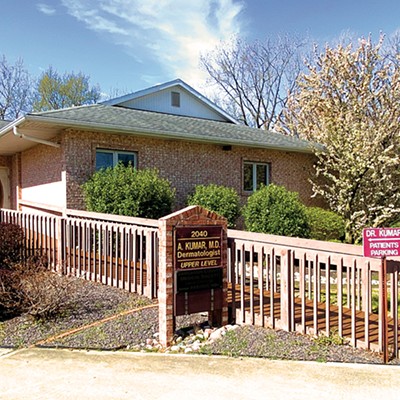Gov. JB Pritzker and House Speaker Chris Welch both threw
cold water on the idea of a veto session supplemental appropriations bill to
help Chicago handle the increasing influx of asylum-seekers from Venezuela.
Speaker Welch told reporters last Thursday he had “made
it clear” to Chicago Mayor Brandon Johnson that “we were not expecting to do a
supplemental budget in the veto session,” while the governor told reporters the
week before that he hadn’t heard about any plans for a supplemental. Governors
always know about supplementals because their office writes them.
There is simply no appetite in the General Assembly to
tackle any super-controversial issues during the veto session, which runs from
Oct. 24 through Nov. 9.
A big part of the reason for wanting a delay until the
spring session is that veto session falls smack dab in the middle of
petition-gathering season. The migrant issue is super-divisive, legislators are
getting an angry earful at the doors as they gather petition signatures, and a
public vote on spending more tax dollars could very well cause some irate
constituents to run against them.
It’s the same basic situation with extending the Invest
in Kids Act, a $75 million income tax credit for contributing to groups that
then pay for private and religious school scholarships. Teachers unions and
progressives hotly oppose extending the program beyond its Dec. 31 expiration date,
but some Democrats would still like to see it extended. Unless a reasonable
compromise can be found, it’ll likely be kicked to next spring as well.
Plus, Mayor Johnson’s recent budget proposal cut the
city’s earlier projected spending on the new arrivals by $50 million, while
increasing spending on other items. That didn’t go over too well with
legislators, either.
The message did not seem to get through to city hall,
however. Members of the Johnson administration continued trying to negotiate their
case through the news media, before ultimately abandoning their quest.
“Just because there isn’t necessarily a supplemental
(appropriation) on the horizon — and I mean, I think those discussions are
still happening — there’s ways that there can be funds redirected to the city,”
Mayor Johnson’s deputy chief of staff Cristina Pacione-Zayas told reporters,
according to the Chicago Tribune. She also said the city wanted the
state to look at “reapplication” of certain state funds.
According to the article, CPZ, a former state Senator,
pointed to state funding of official Welcoming Centers, which she said could be
repurposed to help the migrants. Among many other things last fiscal year, the
Illinois General Assembly appropriated $31 million in additional funds for the
city and more than $50 million for the state to help deal with the
asylum-seekers out of the Welcoming Centers program.
“Welcoming Centers are not for asylum seekers
exclusively,” Pritzker spokesperson Jordan Abudayyeh emphasized to me. “There
are other costs that appropriation has to account for.”
The legislature did approve appropriations for the city
and the state’s migrant responses in the current fiscal year, which will bring
total state spending since the crisis began to close to half a billion dollars,
the governor’s office says. And since the city has not done a good job of
standing up shelters and then moving people into housing, handing it money
intended for the state’s response probably would likely not accomplish all that
much. The situation is so bad that migrants are camped in tents outside of
police stations now.
But it’s true that not every reallocation of state
funding requires a supplemental appropriation bill. Budget items “like rental
assistance, support for community-based organizations doing case work and HOME
IL lines are increasingly funding services for the asylum seeker response,”
Abudayyeh said. The HOME IL program is designed to alleviate homelessness.
This is a very tricky topic. Reallocating money to help
asylum-seekers only validates complaints by Black and Latino political leaders,
including legislators, that their own constituents are being short-changed by
state government in favor of the new arrivals.
Finally, this past Friday, Mayor Johnson got the message,
telling reporters that he would wait until next spring to ask for more state
money. “When they pass their budget in May, we’ll have some very intentional
asks about how we can align our levels of government to meet this demand,” he
told reporters, according to Crain’s Chicago Business.



















